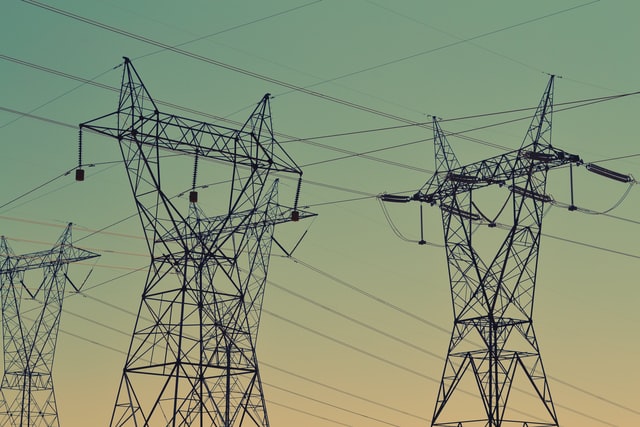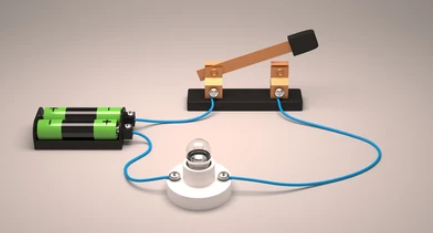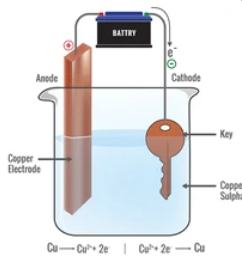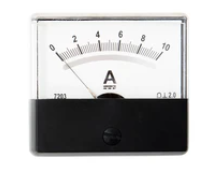10 Frequently Asked Questions About Electricity
Defined as the flow of charge that powers the world around us, have you ever felt intrigued to learn more about electricity?
Considered to be one of the most crucial topics in Science, it is flabbergasting to learn about the multiple theories and concepts in this topic. But as we know, practice brings precision, solving questions on electricity can help you to clear your doubts and bring clarity in the concepts.

Answer our quiz on the chapter ‘electricity’ and understand the concepts in the most simple language. We have handpicked all the questions about electricity to ensure you learn the best.
But before that, remember you just have 10 seconds to answer. The correct option is given at the bottom of the page. Score your answers once you complete the quiz.
So, without any further ado, let’s get started!
Questions
- What is electricity?
a) Electricity is defined as the flow of electrons in a conductor.
b) Electricity is the connection of charges in a conductor.
c) Electricity is the difference in the potential in a conductor.
d) Electricity is defined as the movement of neutrons in a conductor.
- What are the two types of electricity?
a) Positive Electricity and Negative Electricity
b) Static Electricity and Current Electricity
c) Electron Electricity and Proton Electricity
d) Charged Electricity and Neutral Electricity
- A plastic wire is a
a) Conductor
b) Insulator
c) None of these
d) Both of these
- The concept of electroplating is based on
a) Magnetic effect of electricity
b) Heating effect of electricity
c) Physical effect of electricity
d) Chemical effect of electricity
- The potential difference in an electric circuit is due to
a) Cell or battery
b) Switch
c) Voltmeter
d) Ammeter
- Who invented the battery?
a)Thomas Edison
b) Allesandro Volta
c) Michael Faraday
d) None of the above
- Which device is used for measuring electricity?
a) Ammeter
b) Galvanometer
c) Voltmeter
d) Odometer
- The electric current flows in an electric circuit due to
a) Difference in current
b) Difference in potential difference
c) Same potential difference
d) different in heating capacity
- Tin cans are electroplated with tin onto the iron. Why?
a) Tin coating makes the vessel cheap
b) Tin gives a shiny appearance to the vessel
c) Tin makes the vessel lighter in weight
d) Tin is less reactive than iron.
- Tap water is a good conductor of electricity, but distilled water is not. Why?
a) Distilled does not contain salts
b) Tap water contains salts
c) Only a) is correct
d) Both a) and b) are correct
Answers
1) Answer – a)
Electricity is the flow of electrons from a higher potential to a low potential inside a conductor. An example of electricity is the lighting of a bulb, lightning in the sky, etc.

2) Answer – b)
Electricity is of 2 types: static electricity and current electricity.
In static electricity, the charges are at rest, and in current electricity, they move inside the conductor.
3) Answer – b)
A plastic wire cannot conduct electricity, and hence it is an insulator.
4) Answer – d)
Electroplating is the deposition of a thin layer of the desired metal using electric current and depends on the chemical effect of electricity.

5) Answer – a)
The potential difference is the difference in electric potential at any two points and is created by a cell/battery.
6) Answer – b)
Alessandro Volta invented the first battery in 1800. It was after him the ‘volt’ is named.
7) Answer – a)
An Ammeter is a device used for measuring electric current in an electric circuit.

8) Answer – b)
The potential difference allows the electrons to move from high to low potential.
9) Answer – d)
Tin is less reactive than iron. Thus, your food is safe inside the electroplated tin can.
10) Answer – d)
Distilled water does not contain salts, and tap water does. These salts conduct electricity. Thus both the options are correct.
Did these questions sparked the Einstein instinct in you?
Electricity involves different concepts and theories. We hope our quiz helped you to understand the basic fundamentals. For more such questions, practice our other questionnaires.
